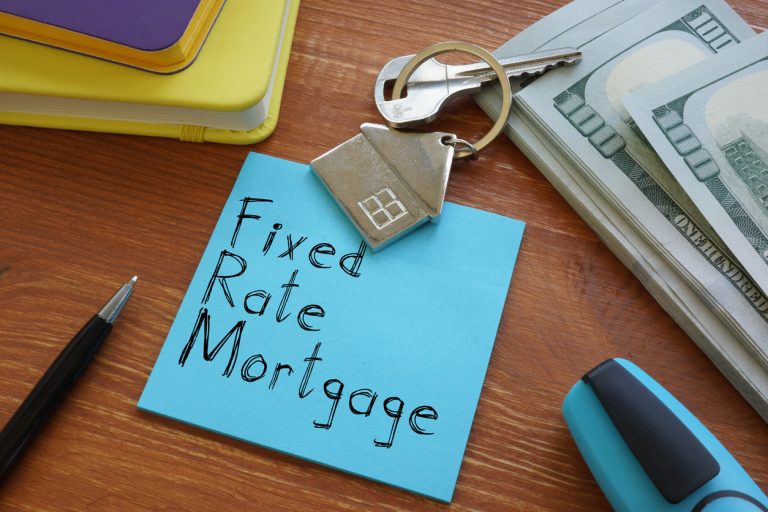How Long Should I Fix My Mortgage For?

Why Do Mortgage Rates Keep Going Up?
If you’ve been keeping on top of the announcements by the Reserve Bank, you’ll know that the Official Cash Rate (OCR) has remained at 5.5% since 24th May 2023. And as we’ve previously learned, the OCR is a large player in dictating how interest rates will be set.
So, if the cash rate hasn’t moved since May, why do mortgage rates keep increasing?
Well, a lot of it is down to the cost of doing business. BNZ has quoted, “The cost of funding, which is predominantly determined by the rates banks can borrow overseas, has been increasing and this increase is being passed through to interest rates.” [source]
This sentiment has been echoed by the other main banks in NZ, with collective statements insinuating that “the OCR was a big driver of interest rates but there were other things that played into it, including what banks were paying depositors, as well as international markets and swap rates.” [source]
However, with the cost of living continuing to climb and banks recording record profits, is it fair to continue pushing mortgage rates up? Some economists think it isn’t and are calling for banks to reduce their interest rates. We’ll have to watch this space to see if their recommendations are taken on board by the big four banks!
What Options Are There?
As we’ve previously discussed, you have two main options for repaying your mortgage. You can lock in a fixed interest rate or you can choose a floating rate.
These are the most common options available to borrowers:
Floating
If you like the flexibility of making lump sum payments on your mortgage or you are happy to ride the wave of fluctuating interest rates in case it changes in the borrower’s favour, then a floating interest rate could be the right option for you.
Floating rates are traditionally the highest of all mortgage rates, but you aren’t locked in at a set rate so you can sometimes capitalise on interest rate reductions. As of 11 September 2023, current floating rates are sitting around 8.00%.
Fixed
If you prefer the security of knowing what your repayments are going to be each month, then a fixed term interest rate is for you. These are the most popular terms banks offer:
- 6 months
- 1 year
- 18 months
- 2 years
- 3 years
- 4 years
- 5 years
Depending on the market, your current situation and future plans, any one of these fixed term options could be the right choice for your family.
How Long Should I Fix My Mortgage For?
As we have already mentioned, choosing to fix your mortgage allows you to budget and plan with set repayment rates. This is attractive for many families as they know what to expect each month.
So, if you do choose to fix, how long should you fix for?
One year mortgage rates have always been the most popular term as it is long enough to budget for, but not so long that you might miss potential savings should rates decrease. However, two year rates have been rising in popularity recently, and three year rates are becoming less attractive to borrowers.
As always, four and five year fixed terms will get you the best rate in the current market. Though it is not always wise to fix for that long when rates are as high as they are currently. It could mean you get locked in at a premium rate and pay more than you need to if rates drop within your fixed term.
Unfortunately, there is no one fixed term that will suit every family. So, it is recommended that you discuss your options with a mortgage broker, especially in the current climate.
Will The Rates Go Up Or Down in 2024?
Last month, economists were predicting that mortgage rates would begin to decrease in 2024. Yet now, they are not so sure. With a deficit in the government’s numbers and global markets feeling the pressure, those decreases may not happen as soon as we’d hoped.
It is thought that “the deficit blowout could cause a bit of upward pressure on interest rates”. Plus, we also have to factor in “worries about inflation next year in the United States.” The USA’s economy has a big impact on how wholesale interest rates are set. [source]
At this point, the direction in which interest rates will move is uncertain. It may become clearer after the election takes place in October. So, in the meantime, we recommend that you seek expert advice from a mortgage broker before making any final decisions.
Why Use A Mortgage Broker?
Why do we recommend that you chat with a mortgage broker? Well, as trusted financial advisors, mortgage brokers, like the team here at Mortgage Suite, live and breathe the mortgage market on a daily basis. That means we understand the market intricately and can make objective recommendations based on your circumstances and the current market conditions.
It’s natural to worry about your mortgage right now, but we want to take that worry away. So, chat with our team today to see what options are available to you in terms of mortgage rates and terms. Contact us now.
